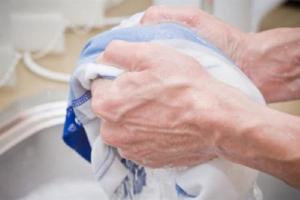Medical, healthcare and health news
HIV and dentistry: is it possible to get infected?
HIV and dentistry: is it possible to get infected?
The current state of affairs regarding the human immunodeficiency virus can be safely called an epidemic, if not a pandemic.
In at least ten regions of our country, the HIV situation is critical. At least 1-2.5% of the total population of the country are carriers of the virus, while every day 270 new patients are registered, and 50-60 people die. And that's just the official statistics.
According to the Minister of Health of the Russian Federation Veronika Skvortsova, the most difficult situation is in the Sverdlovsk region, where it seems HIV infection escaped from the ghetto , in the Samara region, in addition, disadvantaged regions for AIDS - the Orenburg, Kemerovo regions, as well as the Khanty-Mansiysk Autonomous Okrug.
Experts note that the most difficult regions are those through which the illegal traffic of narcotic substances passes, as well as financially prosperous areas where this traffic is easy to sell.
It is the infection of heroin addicts through non-sterile needles that is called the first most common cause of HIV infection - 57% of cases. In second place - unprotected sexual intercourse, in the third - inattentive attitude to sterilization in medical institutions, manicure rooms and tattoo parlors.
How can a patient of a dental clinic protect himself and what actions should a doctor and head of dentistry take?
DOCTOR'S OFFICE: RISK OF INFECTION?
According to the chief physician of the Center for Private Dentistry "DOCTOR LEVIN" Dmitry Levin, infection can occur when the virus enters the blood at a single time, for example, during the extraction of a tooth with dirty instruments, or when a small amount of it enters repeatedly.
This is possible only in a clinic that does not follow the protocols for sterilization and disinfection of instruments and the doctor’s workspace, offices, chairs, etc., and also ignores the requirements of the Ministry of Health on AIDS prevention, does not use the Anti-AIDS, Anti-Hepatitis first aid kit.
According to Dmitry Levin, the clinic's own sterilization room protects the patient, as well as the doctor, from possible infection by 100%.
“The risk group usually includes patients who prefer to be treated by private practitioners, where there is no way to check whether sterilization and pre-sterilization treatment was carried out and its quality.”
The immunodeficiency virus lives only a few minutes outside the human body, and in a closed space - inside a needle, syringe, in the blood - it can remain active for up to several days. HIV is very sensitive to heat: at a temperature of 56 degrees, it is inactivated within 10 minutes, and dies within 30 minutes. Temperature above 100 degrees kills him in one minute, - explains the head of the dentistry department of the INPROMED Dental Center, an orthopedic dentist Tatiana Sidorova. - Quickly dies under the influence of disinfectants: 5% hydrogen peroxide solution, 3% chloramine solution, 70-degree alcohol solution, ether, acetone.
The virus is resistant to freezing, UV radiation and ionizing radiation. Infection occurs when biological fluids containing HIV enter the bloodstream directly, through damaged skin and mucous membranes, and the infectious dose is approximately 10,000 viruses.

PREVENTIVE METHODS ACCEPTED IN CLINICS
The head of the clinic is obliged to instruct medical workers, as well as personally monitor compliance with the norms of SP 3.1.5.2826-10, which regulates HIV prevention.
Tatyana Sidorova is convinced that strict disinfection rules help modern clinics protect themselves from infection:
Dental instruments go through several stages of processing: disinfection, pre-sterilization treatment, sterilization. Sterilization is monitored and occult blood detection on instruments is carried out. Injection needles, saliva ejectors, dental aspirators, aprons should be disposable, as well as protective equipment for the doctor and assistant: gloves, masks. In dental offices where all these rules are strictly observed, the chance of contracting HIV is reduced to zero.
CONTENTS OF THE SPECIALIZED AID KIT
The contents of the first-aid kit are not clearly spelled out in full, however, SP 3.1.5.2826-10 obliges health workers to carry out certain anti-emergency measures, including treatment of wounds with 70% alcohol solution, 5% alcohol solution of iodine, and mucous membranes of the eyes with 1% boric acid, nose - 1% protargol, mouth - 70% alcohol solution, 1% boric acid or 0.05% potassium permanganate.
In addition, rapid HIV testing should be carried out immediately and should be available to all clinics. This is not directly indicated in the norms, but it would be logical to include such tests in the first-aid kit for the most prompt access to them.
WHAT CAN THE PATIENT?
First of all, the patient is required to be attentive when communicating with the doctor and in general when visiting the clinic. If he notices traces of blood left from a previous patient, if the whole room is dirty and untidy, this should alert him.
Tatyana Sidorova warns that the sanitization of the premises should be carried out after each patient, there should be a disposable cup in a clean spittoon, and the chair should be wiped with a disinfectant. Masks, gloves and aprons of the doctor and assistant should also be disposable and changed after each patient.
General Director of the dental clinic "ANATOMY OF A SMILE" Yanna Varkentin recommends paying close attention to the opening of single-use packages of instruments and related materials by the doctor in front of you. The state of sedation or anesthesia, of course, makes such control difficult for the patient.
“During the preparation of the operating room, a set of necessary instruments is formed in advance on a sterile table with certain sterile standards,” explains Janna Varkentin, “however, there is always the opportunity to come to the clinic early and make sure that the instruments are sterile.”

HAZARD FOR BOTH PATIENT AND DOCTOR
It's not just patients who fear catching deadly infections in the doctor's office. Doctors are also exposed to a carrier of the virus, who may be unaware of their condition or unwilling to talk about the illness. In this situation, the doctor is forced to suspect each patient, which means that careful disinfection of instruments and the use of disposable items are in his interests.
Suddenly, a sudden injection, cut with a needle or other instrument can happen - says the general director and chief physician of the Dental Jazz clinic, a dentist of the highest qualification category Igor Kolobukhov- In this case, a doctor who suspects an infection in a patient is forced to use an express test, which is very expensive.
Today, OraQuick HCV is the only recognized worldwide method for determining HIV and hepatitis C in gingival fluid. The cost of these drugs is 671 and 1343 rubles, respectively.
In addition, the Decree On Amendments to SP 3.1.5.2826-10 "Prevention of HIV Infection" requires the written voluntary consent of the patient to be requested for any medical manipulations and tests. Sometimes patients do not want to sign it. Under these conditions, it is much more reasonable to use the opportunities available in modern clinics for sterilization and disinfection.
We can protect ourselves from infection in the medical office by observing certain precautions. Dentistry has its own sterilization room, compliance with established sanitary and epidemiological standards minimizes the possibility of infection with deadly HIV or hepatitis viruses, and control over the implementation of these standards lies not only with doctors and clinic managers, but also with the patients themselves, who take care of their health.
Yulia Clouda,
online magazine manager
about dentistry Startsmile.ru
Photo shutterstock.com
Despite advances in medicine, no remedy has yet been found that will be effective in combating the immunodeficiency virus. So the disease remains incurable. And that scares a lot of people. Prevention remains the only way to protect against HIV. Many people are still not familiar with the information that describes how the virus is transmitted. Their knowledge is based only on unverified rumors and their own guesses. All this only increases the fear of infection. So today the question is very relevant: "Is it possible to get HIV from a dentist?". About the norms of sanitization of tools and will be discussed in this article.
Briefly about HIV infection
Today, everyone knows that this disease is characterized by the fact that the smallest microorganisms cause failures in the protective functions of the body in people. The action of the virus can be described as follows. Once in the body, it affects the immune system, destroys the cells responsible for protecting against infections and destroying microbes.
Over time, a person becomes unable to resist either external infections or bacteria or fungi. The virus reproduces only inside a person. Outside the body, it dies. The time of life expectancy outside the body is affected by the temperature factor, humidity. The virus dies when heated (over 56 degrees Celsius). Sterilization of dental instruments completely destroys HIV, because it is designed for more tenacious viruses and bacteria.
Ways of transmission of the virus
The highest probability of HIV transmission is from a person who is at the end of the incubation period, at the time of initial manifestation and at a late stage of the disease. The infection in question is classified as a long-term illness. The virus feels great in all human biological fluids (blood, semen, vaginal secretions, breast milk, saliva, tears, sweat, etc.). It is worth noting that the virus is contained in these biological fluids in different concentrations. This determines the difference in their epidemiological significance.
Human biological substrates most likely to transmit infection include:
- blood;
- breast milk;
- vaginal discharge;
- semen and pre-ejaculate.
It should be noted that HIV infection is caused by the entry of pathogens into the internal environment of the body. We are interested in the question: "Is it possible to get HIV from a dentist?". Therefore, we will consider the only possible way of transmission of infection - through the blood.

HIV prevention in dentistry
It is no secret that cases of infection of patients in medical institutions, manicure rooms and other institutions have been recorded. The risk group includes all objects in which the provision of services involving surgery or cosmetic manipulations is expected.
They are not an exception. A huge number of people come to their offices every day. It is for this reason that it is especially important to comply with all sanitary standards and sterilize dental instruments. To date, every clinic has a plan of preventive measures. By fulfilling all the requirements, both a private dentist and a doctor at a state hospital protect themselves and their patients from infection.

Possible causes and features of infection in the dental office
We are interested in the probability and ways of infection of the dentist's patients. Can you get HIV from a dentist? Theoretically yes. In a medical institution, you can become infected with a single hit of virus particles in the blood. For example, this can happen during the removal of a dental unit with an insufficiently sterile instrument. Multiple fractional exposure (microinfection) can also lead to the development of the disease in the patient. As a rule, the body, having good resistance, is able to resist viruses. But not always the mucous membrane can work as a barrier.
When a person is treated in a clinic that has its own sterilization station, there is no risk of infection. Almost 100% security guarantee. Modern dental clinics in Moscow are almost all equipped to the highest standard. Here only the so-called human factor can play a cruel joke. Negligent attitude to the prevention of infection of any of the staff is not excluded. Therefore, the choice of a doctor should be approached with all responsibility.
How are dental clinics sterilized in Moscow?
The virus in question is sensitive to high temperature. Boiling kills it very quickly (60 seconds). The virus is not able to resist the effects of disinfectants (hydrogen peroxide, chloramine solution, alcohol, ether and acetone).
In order to prevent infection, specialists of a modern clinic always follow sanitary rules. Dental instruments go through several stages of cleaning:
- disinfection;
- Preliminary processing;
- sterilization.
In addition to these manipulations, the procedure for detecting latent blood on the instrument is carried out. The quality of sterilization is also controlled.
In dentistry, one-time use of the following devices and protective equipment has long been practiced:
- saliva ejector;
- injection needles;
- dental aprons and aspirators;
- gloves, masks.

There are several rules that will allow you to secure your trip to the dentist. For many patients, the event itself is stressful. And if they are also worried about the question: “Is it possible to get HIV from a dentist?”, A trip to the doctor may not take place at all. We offer several ways to kill two birds with one stone.
First, it will work. And it will distract the patient from the fear of dental instruments.
Secondly, a person will feel much calmer when he can control the issue of his own safety.
You need to make sure that the doctor opened the package of instruments intended for single use in front of you.
Before the procedure, you can pay attention to the condition of the instruments, as well as the cleanliness of the office.
Correct actions in non-standard situations are the key to safety. For example, anesthesia was performed at the dentist, after which the doctor accidentally pricked with a needle. What to do? The specialist should use the Anti-AIDS first aid kit, and not just change gloves and continue treatment.

Providing dental care to HIV-infected people
The federal law states that preventing the spread of diseases caused by the immunodeficiency virus in the Russian Federation also consists in providing medical care. Reduced contact with the patient to a minimum. The doctor is obliged to maintain medical secrecy. The law provides for disinfection measures. In connection with them, the expediency of placing sick patients in separate rooms was noted. At the same time, they must be equipped with the necessary equipment. For preventive purposes, it is recommended to carry out all therapeutic manipulations last (after healthy patients).
Patients with HIV infection can receive dental care in full, provided that the prescribed safety measures are observed. In turn, people with HIV infection should notify staff of their status.

What to do if you suspect an infection?
In general, experts recommend that all adults periodically take tests for HIV. This can be done with the help of rapid tests that are implemented in pharmacies. The patient will receive more reliable information in specialized rooms. You just need to donate blood and wait for the result.
Unfortunately, the early one is complicated by the fact that the initial symptoms are also found in other ailments. Nevertheless, you should be wary of the manifestation of unmotivated fatigue, increased sweating at night, headaches. At the same time, high body temperature, prolonged diarrhea can be kept. Symptoms of infection include:
- weight loss;
- furunculosis;
- swollen lymph nodes.
You can suspect HIV when diagnosing the following diseases:
- pneumonia (pneumocystis);
- Kaposi's sarcomas;
- toxoplasmosis of the brain;
- herpes zoster.

Instead of a conclusion
In conclusion, I would like to add that in the field of medicine and dentistry in particular, algorithms have long been developed that allow us to provide the population with the safest and most reliable treatment. If all preventive and protective measures are followed, the likelihood of HIV infection in the dentist's office is minimal. All this is due to the responsible approach of the doctor and the management of the clinic to their work and attentive attitude to even the most insignificant details. The responsibility for choosing a clinic and a specialist falls on the shoulders of patients. A private dentist will take care of the appointment or an on-call doctor - this decision is up to you. It must be remembered that you always have the right to refuse to perform manipulations if any actions of the doctor do not inspire confidence in you.
In Russia, more than a million people are HIV-positive, and these are only those who know about their status and are registered with a specialized medical center AIDS Center Statistics.. Many do not yet realize that they are sick.
This is a real epidemic, so the fears are understandable. Even at school, they say that HIV is transmitted through blood and some biological fluids, that you need to use condoms and, of course, do not inject yourself with anything. But is this enough?
In the same schools, since the time of my studies, there have been horror stories about infected needles, which are deliberately scattered in sandboxes by angry drug addicts (I must say, used syringes are not uncommon in urban bushes). Adults in sandboxes are not so often, but they are no less afraid.
After all, HIV is transmitted through blood. So any place where blood appears is dangerous? For example, a dentist's chair or a nail salon. You never know who was at the master, suddenly someone from the infected million.
I once and for all refused a trimmed manicure a few years ago, so there was less chance of picking up something unpleasant. Interestingly, the infection has not ceased to be afraid. I can’t give any rational explanation for this fear, so I just follow with an eagle eye every time what the master has with tools, and pester me with questions about how it’s all processed. By the way, finding a normal and responsible craftsman who does not care about the cleanliness of tools is another quest.
Lydia Suyagina
Let's try to figure out what to fear and what not to.
How the virus is transmitted
According to the statistics of Rospotrebnadzor, the most popular way of infection is non-sterile syringes. Awareness and prevention of HIV infection.. In second place with a minimum margin is the sexual route (in the world the picture is different: it is sexually that HIV is most often transmitted WHO fact sheet.). There are far fewer cases of mother-to-child transmission of HIV if the pregnant woman is not on therapy. And the rarest cases are infection in hospitals.
There are no separate dental clinics or nail salons on this list. Information that someone caught the virus in such ways could not be found. But theoretically it is possible.
HIV is an unstable virus, it dies quickly outside the body. But in a drop that has been preserved in a syringe needle, it can last up to a week at room temperature, even if the blood has dried up. In rare cases (if there was a lot of blood), HIV persists longer, but the number of active particles decreases every day Survival outside the body.. It should be noted that the studies that examined the persistence of HIV were conducted in laboratories and initially used blood with a high concentration of the virus.
The virus is destroyed at high temperatures (when heated to 60 ° C, and even more so when boiled, it dies), but is not afraid of the cold.
That is, in order for HIV to pass to a still healthy person, several conditions are needed:
- A tool that will contain the blood of a sick person in a sufficiently large amount.
- High concentration of the virus in this blood.
- Room or cool temperature.
- A wound through which blood enters a healthy person.
These conditions exist in dentistry, and in a beauty salon, and in a tattoo parlor. But only in one case: you came to a place where you have not heard about disinfection and sterilization.
How to protect yourself from HIV
The dentist's chair uses both needles and all kinds of instruments that come into contact with blood. According to sanitary norms and rules, everything that is not disposable must be disinfected, cleaned and sterilized. A clinic that does not comply with these rules will not be licensed or certified. In tattoo parlors, beauty studios and hairdressers, the rules for working with blood are no worse than in hospitals. SanPiN 2.1.2.2631-10..
It is difficult to understand how conscientiously the clinic treats procedures if you yourself do not know by heart all the temperature regimes for processing instruments. Look at the overall impression: how clean the rooms are, how many disposable items, whether the office is well equipped. If you are very scared, ask your doctor how the instruments are processed.
Don't get paranoid, but it's good to remember that there are other infections besides HIV that are transmitted through poorly treated instruments. Hepatitis B and C, for example, are more persistent than the immunodeficiency virus, they are more contagious.
With a manicure or pedicure, the likelihood of contracting HIV is low: not so serious cuts during these procedures. But even if you do not do a trimmed manicure, visit only those salons that monitor the number of tools and their processing. This means that the master cannot have one set for everyone and that he will tell you without hesitation how and with what he sterilizes tweezers, scissors and tips.

It is difficult to get HIV in a beauty salon. Hepatitis or a fungal infection is more contagious. It is important that the sanitary rules for processing are observed in the salon: disinfection, pre-sterilization cleaning and sterilization.
Young masters often neglect the processing rules due to negligence and ignorance. Therefore, before trusting your health to the master, ask what solution he uses and where the dry-heat cabinet is in the cabin.
Olga Aleinikova
The rules of hygiene are simple: be attentive to yourself and your health, do not go to dubious clinics and salons, do not be afraid to ask if something is not clear to you. After all, it's okay to worry about your health.
And donate blood for HIV. Just not to worry.
Despite advances in medicine, no remedy has yet been found that will be effective in combating the immunodeficiency virus. So the disease remains incurable. And that scares a lot of people. Prevention remains the only way to protect against HIV. Many people are still not familiar with the information that describes how the virus is transmitted. Their knowledge is based only on unverified rumors and their own guesses. All this only increases the fear of infection. So today the question is very relevant: "Is it possible to get HIV from a dentist?". About the methods of transmission of infection, the norms of sanitization of instruments and will be discussed in this article.
Briefly about HIV infection
Today, everyone knows that the abbreviation HIV stands for "human immunodeficiency virus." This disease is characterized by the fact that small microorganisms cause failures in the protective functions of the body in people. The action of the virus can be described as follows. Once in the body, it affects the immune system, destroys the cells responsible for protecting against infections and destroying microbes. Over time, the person becomes unable to resist external infections, either bacteria or fungi. The virus reproduces only inside a person. Outside the body, it dies. The time of life expectancy outside the body is affected by the temperature factor, humidity. The virus dies when heated (over 56 degrees Celsius). Sterilization of dental instruments completely destroys HIV, because it is designed for more tenacious viruses and bacteria.
Ways of transmission of the virus
The highest probability of HIV transmission is from a person who is at the end of the incubation period, at the time of the initial manifestation and at a late stage of the disease. The infection is considered to be a long-term illness. The virus feels great in all human biological fluids (blood, semen, vaginal secretions, breast milk, saliva, tears, sweat, etc.). It is worth noting that the virus is contained in these biological fluids in different concentrations. This determines the difference in their epidemiological significance. Human biological substrates that have the highest probability of infection transmission include:
It should be noted that HIV infection is caused by the entry of pathogens into the internal environment of the body. We are interested in the question: "Is it possible to get HIV from a dentist?". Therefore, we will consider the only possible way of transmission of infection through the blood.
HIV prevention in dentistry
It is no secret that cases of infection of patients in medical institutions, manicure rooms and other institutions have been recorded. The risk group includes all objects in which the provision of services involving surgical intervention or cosmetic manipulations is expected. Dental clinics are no exception. A huge number of people visit their offices every day. It is for this reason that it is especially important to comply with all sanitary standards and sterilize dental instruments. To date, each clinic has a plan of preventive measures. By fulfilling all the requirements, both a private dentist and a doctor at a state hospital protect themselves and their patients from infection.
Possible causes and features of infection in the dental office
We are interested in the probability and ways of infection of the dentist's patients. Can you get HIV from a dentist? Theoretically yes. In a medical institution, you can become infected with a single hit of virus particles in the blood. For example, this can happen during the removal of a dental unit with an insufficiently sterile instrument. Multiple fractional hits (microinfection) can also lead to the development of the disease in a patient. As a rule, the body, having good resistance, is able to resist viruses. But not always the mucous membrane can work as a barrier. When a person is treated in a clinic that has its own sterilization station, there is no risk of infection. Almost 100% security guarantee. Modern dental clinics in Moscow are almost all equipped to the highest standard. Here only the so-called human factor can play a cruel joke. Negligent attitude to the prevention of infection of any of the staff is not excluded. Therefore, the choice of a doctor must be approached with all responsibility.
How are dental clinics sterilized in Moscow?
The virus in question is sensitive to high temperature. Boiling kills it very quickly (60 seconds). The virus is not able to resist the effects of disinfectants (hydrogen peroxide, chloramine solution, alcohol, ether and acetone). In order to prevent infection, specialists of a modern clinic always follow sanitary rules. Dental instruments go through several stages of cleaning:
In addition to these manipulations, the procedure for detecting latent blood on the instrument is carried out. The quality of sterilization is also controlled. In dentistry, one-time use of such devices and protective equipment has long been practiced:
There are several rules that will allow you to secure your trip to the dentist. For many patients, the event itself is stressful. And if they are also worried about the question: “Is it possible to get HIV from a dentist?”, A trip to the doctor may not take place at all. We offer several ways to kill two birds with one stone.
First, the attention switch will work. And it will turn the patient away from the fear of dental instruments. Secondly, a person will feel much calmer when he can control his own security issues. You need to make sure that the doctor opens the package of instruments intended for single use in front of you. Before the procedure, you can pay attention to the condition of the instruments, as well as the cleanliness of the office. Correct actions in non-standard situations are the key to safety. For example, anesthesia was performed at the dentist, after which the doctor accidentally pricked with a needle. What to do? The specialist should use the Anti-AIDS first aid kit, and not just change gloves and continue treatment.
Providing dental care to HIV-infected people
The federal law states that the prevention of the spread of diseases caused by the immunodeficiency virus in the Russian Federation also consists in the provision of medical care. Due to the reduction of contact with the patient to a minimum. The doctor is obliged to keep medical secrecy. The law provides for disinfection measures. In connection with them, the expediency of placing sick patients in separate rooms was noted. At the same time, they must be equipped with the necessary equipment. For preventive purposes, it is recommended to carry out all therapeutic manipulations last (after healthy patients). Patients with HIV infection can receive dental care in full, provided that the prescribed safety measures are observed. In turn, people with HIV infection should notify staff of their status.
What to do if you suspect an infection?
In general, experts recommend that all adults periodically take tests for HIV. This can be done with the help of rapid tests that are implemented in pharmacies. The patient will receive more reliable information in specialized rooms. You just need to donate blood and wait for the result. Unfortunately, early diagnosis of HIV infection is complicated by the fact that the initial symptoms occur in other ailments. Nevertheless, you should be wary of the manifestation of unmotivated fatigue, increased sweating at night, headaches. At the same time, high body temperature, prolonged diarrhea can be kept. Symptoms of infection include:
You can suspect HIV when diagnosing such diseases:
Instead of a conclusion
In conclusion, I would like to add that in the field of medicine and dentistry in particular, algorithms have long been developed that allow us to provide the population with the safest and most reliable treatment. Subject to all preventive and protective measures, the likelihood of HIV infection in the dentist's office is minimal. All this is due to the responsible approach of the doctor and the management of the clinic to their work and attentive attitude to even the most insignificant details. Patients are responsible for choosing a clinic and a specialist. A private dentist will take care of the appointment or an on-call doctor - this decision is up to you. It must be remembered that you always have the right to refuse to perform manipulations if any actions of the doctor do not inspire confidence in you.
Hello, I have a question for you. My husband had a bad toothache. He works late, so it's hard to get to the dentist. When the cheek was already swollen, after work we went to the doctor on duty at the city clinic, the doctor simply opened the tooth and prescribed rinses. The doctor was very young. And even messed up a tooth. He sent me for an x-ray with a different tooth number, after which the tooth was treated, the channels were cleaned and a filling was placed. The swelling from the cheek subsided, but the pain remained a little. (all this was at the end of October), around November 5, my husband's lymph node inflamed in the area of \u200b\u200bthe cheek near the ear, it hurt, I connected it with a tooth. An alcohol compress was applied. The lymph node is gone. It became barely noticeable. But then I woke up with a sharp sore throat, I saw 2 white pimples on the tonsil, it hurt to swallow and the same lymph node on the cheek near the ear became inflamed. He is painful. I felt my ear on the other side. It feels good. Now I have already wound myself up on the worst thing, that when opening a tooth, they could bring an infection. Vich type. And the symptoms began. Very scary. She began torturing her husband, he seemed to say. That at autopsy he spat and there was no blood. Tell. Is this possible if the instrument was non-sterile. Very worried. Whether it is necessary to hand over any analyses. Or maybe it's a phobia. Thank you in advance
Anna Ivanova, Belgorod
ANSWERED: 11/10/2015
Hello. Doesn't look like HIV symptoms. It is quite possible to get infected at the dentist, but the risk is not great. If in doubt, then take the test 1-3-6-12 months after visiting the dentist.
clarifying questionANSWERED: 11/10/2015
It is possible to get sick with HIV infection when visiting a doctor, but this is casuistry. This infection has no specific symptoms, which is the reason for the complexity of early diagnosis.
clarifying questionHello! There is no danger of HIV, visit a therapist. Sincerely, Alexandrov P.A.
clarifying questionClarifying question 11.11.2015 Anna Ivanova, Belgorod
Prompt, why even here opinion of 2 doctors disperse. The first one writes. That there is a risk. The second is that it doesn't exist. And if you write that the symptoms are uncharacteristic. What then their symptoms to your practice are more characteristic. I have already read a bunch of sites. Most speak. That it is impossible to get infected like that, but there are separate opinions. What is possible. Help me to understand
ANSWERED: 11/11/2015
Hello. The risk is very, very small. Usually, with HIV, the immune system suffers and, indeed, there are no specific symptoms.
clarifying questionClarifying question 11.11.2015 Anna Ivanova, Belgorod
Tell me, and an increase in the lymph node on the cheek near the ear, this is normal for a cold or tooth treatment. At vich more often vospoljajutsja groups?
ANSWERED: 11/11/2015
Once again, HIV has no symptoms. In the presence of inflammation in the oral cavity, the lymphatic system always reacts
clarifying questionClarifying question 13.11.2015 Anna Ivanova, Belgorod
Oh, dear doctors, the panic does not leave me, I already called the doctor, asked about sterility, he, of course, reassured me, and it seems like, according to him, we were the first at the reception. Since they work from 8, we were at 8.05, but who knows. And it's too early to get tested. One day you will calm yourself, the next you will read forums where people talk. How did they get infected? And fear sets in again. And if it was 23. 10. For how long and with what percentage is the analysis reliable. Should I do an express test? I really appreciate your advice
Clarifying question 17.11.2015 Anna Ivanova, Belgorod
Tell me, I think you already understood. What will calm me down only an analysis for HIV, whether the intake of immunal and human interferon somehow affects the result of the analysis. Since now we have caught a cold and are being treated. And how informative the 4th generation test will be after 4 weeks. Thank you in advance
Clarifying question 17.11.2015 Anna Ivanova, Belgorod
And how accurate do you think the 4th generation test is after 4 weeks. Or it already makes sense to endure at least up to 6. Thanks in advance
Similar questions:
| date | Question | Status |
|---|---|---|
| 01.12.2017 |
Did an x-ray of the tooth. The laboratory assistant does not change gloves, washes with water, can work in one the whole shift, when laying a disposable film to the tooth, touched the mucous membrane of the lips. What are the risks for HIV, hepatitis B and C. Deadlines for PCR and IF analysis. Thank you |
|
| 10.05.2018 |
Good day. Little panic. Was in dentistry. After 7-8 minutes, I noticed small frozen drops of blood on the lighting lamp. The doctor says it's my blood. And yes, she touched her. Naturally, there were wounds in the oral cavity. There was a lot of blood. Before me there was a girl on consultation. It wasn't drilled, I guess. I think that even if it is not my blood, it was on the lamp for 15-20 minutes before contact with me. The condition of these two small drops of blood is something like jelly. What is the probability... |
|
| 27.05.2013 |
Tell me if I have an acute process of Epstein Barr virus disease, and do I need treatment? The temperature is subfebrile for more than 7 months, normalizes at night, fungus in the throat, HIV is negative, the results of the Epstein-Barr examination: IgG antibodies to the capsid antigen of the Epstein-Barr virus (VCA G) -14.0 (normative indicators: up to 0.9 negative result, more than 1.1 positive ; 0.9-1.1 - doubtful result;) IgG antibodies to the nuclear antigen of the Epstein-Barr virus (EBNA) -18. 2 (standard... |
|
| 14.05.2017 |
Good afternoon. I am 31 years old. Since childhood, I have been periodically (1-3 times a year, usually spring-autumn or winter, or after an illness or stress) tormented by the following symptoms: foggy head, fatigue, quiet whistling in the ears, loss of appetite, depressed and very suspicious mood, unwillingness to do something, slight dizziness, weakness in the arms and legs, sleep badly. In my head at this moment, thoughts are only about illnesses, this only makes it worse and I wind myself up to a fainting state. Thoughts... |
|
| 27.10.2013 |
Good night Pavel Andreevich! Please tell me, in a year, my ifa will be negative after (unprotected sexual contact with a girl, HIV 1 or HIV 2, I didn’t understand! I learned from a friend after the symptoms! The symptoms are all like in the book! Tests for HIV ifa 7 week 2 4 5 6 7 8 9 10 11 months negative 3 months PCR RNA (hemotest) 200 copies - HIV not detected 4 months Center for Molecular Diagnostics PCR RNA HIV 1. 2 20 copies - HIV not detected 6 months PCR RNA quality HIV 1. 2 20 copies HIV not detected .. . |








